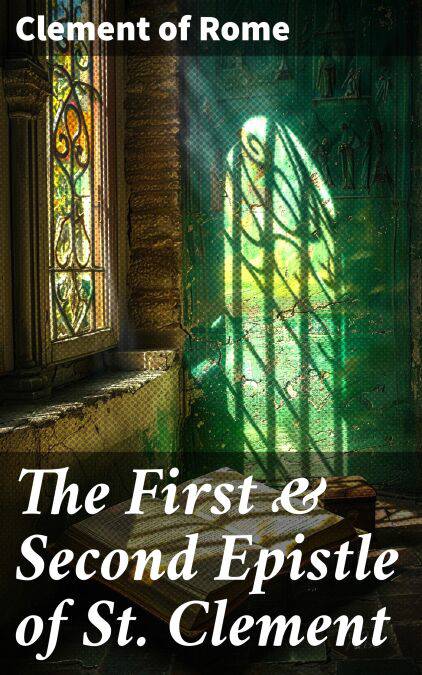
- Afhalen na 1 uur in een winkel met voorraad
- Gratis thuislevering in België vanaf € 30
- Ruim aanbod met 7 miljoen producten
- Afhalen na 1 uur in een winkel met voorraad
- Gratis thuislevering in België vanaf € 30
- Ruim aanbod met 7 miljoen producten
Zoeken
The First & Second Epistle of St. Clement E-BOOK
Clement to Corinthians: Early Christian Writings
Clement of Rome
E-book | Engels
€ 1,99
+ 1 punten
Omschrijving
The First and Second Epistle of St. Clement stands as a pivotal work in early Christian literature, reflecting the theological and ecclesiastical struggles of the late first century. Written in a letter format, Clement's epistles address themes of church authority, unity, and moral conduct, promoting a vision of a harmonized Christian community in the face of disunity. The rich rhetorical style blends ethical exhortation with scriptural references, appealing to the moral sensibilities of its contemporary audience while setting a foundational precedent for later Church doctrine. These letters not only offer insights into early Christian beliefs but also resonate with broader philosophical currents of the time. Clement of Rome, regarded as one of the Apostolic Fathers, is traditionally identified as a bishop of Rome who contributed to the shaping of early Christianity during a formative period. His role as an intermediary between the apostolic tradition and the burgeoning Christian Church likely inspired these writings, as he sought to address divisions and challenges faced by the early Christians. His letters encapsulate a blend of pastoral care and theological acumen, reflective of his leadership during a time of persecution and doctrinal uncertainty. Readers seeking to deepen their understanding of early Christian thought and community dynamics will find The First and Second Epistle of St. Clement invaluable. This work not only illustrates the pastoral challenges faced by the early Church but also invites contemporary readers to reflect on the enduring principles of unity and moral integrity within their own communities.
Specificaties
Betrokkenen
- Auteur(s):
- Uitgeverij:
Inhoud
- Aantal bladzijden:
- 54
- Taal:
- Engels
Eigenschappen
- Productcode (EAN):
- 8596547789413
- Verschijningsdatum:
- 24/12/2023
- Uitvoering:
- E-book
- Beveiligd met:
- Digital watermarking
- Formaat:
- ePub

Alleen bij Standaard Boekhandel
+ 1 punten op je klantenkaart van Standaard Boekhandel
Beoordelingen
We publiceren alleen reviews die voldoen aan de voorwaarden voor reviews. Bekijk onze voorwaarden voor reviews.











